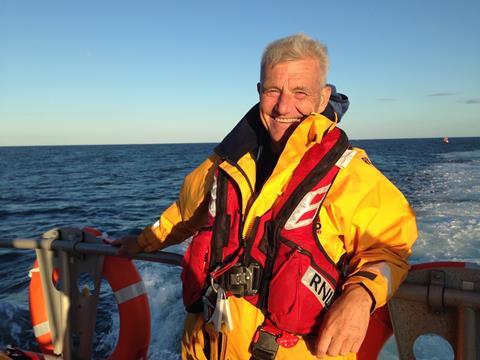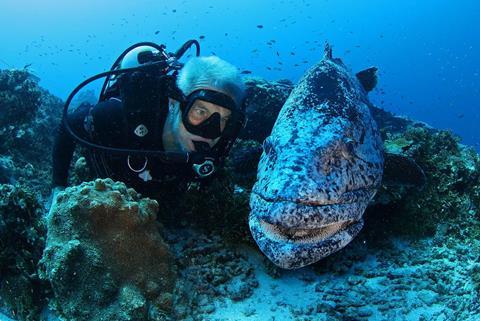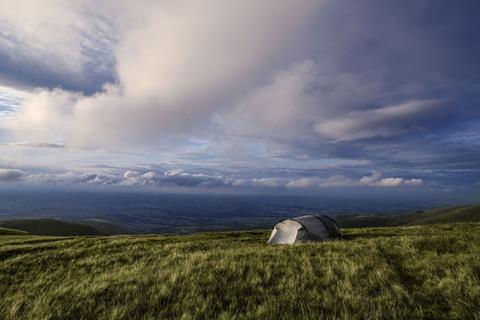In an exclusive interview with STO, the adventurer, who has presented various BBC documentaries, spoke about why now is the opportunity to rethink how children learn.

Paul is a long-standing advocate of getting children learning away from the classroom, believing that experiences both outdoors and overseas, are a key part of a youngster’s development.
He said: “As well as demonstrating that we perhaps don’t need to travel so much for events and other things (I’ve become a professional Zoomer), the lockdown has also underscored the need to travel.
“I’ve got the perspective I have from a lifetime of travelling and I do worry that this period will stop the younger generation from having that. It is the thing that broadens the mind.”
“When you’re young, those formative powerful experiences of being in a foreign country, listening to a foreign language, the feeling in the air, the food, the culture, it’s a key part of development and growing up.”
“We need to use this period to really promote that and push the value of it.”
The experienced TV presenter and radio broadcaster believes that now is the opportunity to rethink teaching and learning, placing the emphasis on getting children out of the classroom as the ‘default’ mode.

“This is the chance to change our antiquated learning and have outside the classroom as the norm. I believe that all the best learning is done outside, it doesn’t matter about the subject being taught or even the weather conditions. This is the opportunity for kids to be learning outside the classroom.”
“I’m a huge fan of school trips , anything outside the classroom is good. Learning in the classroom is so incredibly limited. If we’re going to truly reset values, the way to do it is outside the classroom.”
Speaking about what the lockdown and pandemic have taught us, Paul believes the lesson is that: “The only true vaccine against a future pandemic is to protect nature and the only way to do that is to look after what we have, restore any damage and reset values. Children have got to be learning alongside nature, whether that’s nearby in parks, natural areas, beaches, woods etc. or by doing some travel - travel is where they will grow, learn and understand.”
Paul’s recommendations for online resources teachers can access:
- Earthwatch - I’ve been a fan for many years, they’re running Wild Days which is just brilliant.
- National Geographic - their online resources for children are excellent.
- Royal Geographical Society - has a number of fantastic ideas and resources too.
Importance of reconnecting children with nature
The former vice president of the Royal Geographical Society worries that many children will have what has been coined “nature deficit disorder” as a result of the lockdown and therefore there’s even more need to get children connected with nature once they’re back at school especially.
He added: “There are millions of kids growing up in council flats or blocks that don’t have access to a garden so the only real solution is to use the schools, teachers and local authorities to get those children learning outside.”
And he emphasised that it doesn’t always mean going on expeditions or trips overseas: “I grew up in Romford, Essex, and while walking around there is never going to be as interesting as going to the coast, teachers can make it work by managing expectations and being creative.”
Paul’s own experience of school trips as a youngster
He shared a life-changing moment during a residential to the Brecon Beacons as a teenager: “When I was 14, I was in a race to the bottom, although I couldn’t have used that phrase at the time. I was in a school I didn’t like with a bunch of teachers who had become the enemy and I was having trouble learning. Then, a geography teacher, Mr Grey, took us to the Brecon Beacons and the further we got away from school and the closer we got to the Welsh border, the less he became a suit wearing teacher and the more he became a cagoule wearing enthusiastic happy man.

“He connected with us and dare I say it, we came to like him and he started to inspire us. I’d never done anything like it, I didn’t know I was doing maths but using a map and compass and trying to navigate came very naturally to me. I particularly enjoyed the team activities, being in the youth hostel, washing up, cleaning, I really liked sitting on the step in the rain peeling potatoes in the bucket.
“It was the making of me, that’s what I needed. That was my door opening, that was me becoming Paul Rose.”










